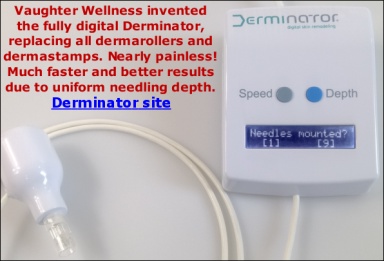You mean Biodermis? I am sorry but this forum is only to support our products and it is against forum rules to namedrop products or companies. The problem is that unrestricted forums always degenerate into spamfests, even though most bona-fide forum participants are unaware of the fact that a large number of people are simply paid spammers located in the Philippines, getting paid a dollar for each posting left standing. We see a lot of that kind of spamming for dermarollers (Dr. Roller and Scientia employ paid spammers). Nowadays, it has become impossible to distinguish a professional spammer from a genuine forum poster.
I have written about silicone products before - they most likely work on the basis of occlusion:
https://http://forums.owndoc.com/dermarolling-microneedling/Kelo-cote-cream-for-hypertrophic-scarsThere are countless products out there and there aren't enough hours in a day to research them all.
The product you're referring to is intended for keloid and hypertrophic scars, not acne scars so I think it's interesting that you achieved such a good result in such a short time. I wonder whether it will last. It would be great that a cream that costs a few cents to make would have such a spectacular, permanent effect on such hard-to-treat scars. I'm a bit sceptical. Biodermis is the leader in Silicone scar treatment and they specifically state that their products do not work on acne scars in point 5:
https://http://www.biodermis.com/scar_product_faq/2To rub silicone into a needled scar would seem risky business to me, as you do not want to get silicone into your system, as it is inert (does not break down). Anything that can interfere with the inflammatory process also is a big no-no, so I would certainly not combine the two.
We may start selling such creams but only when there is strong evidence that it really works. Let us know your progress (before and after pictures), and it would be useful to have others reporting their long-term progress here as well. It's in our philosophy to offer the cheapest solution possible, so if it really works, we'd probably start selling silicone from DIY shops if the solvent they use is similar to the one used in skin creams - a comparable quantity you'll find in a silicone kit tube costs a few thousand dollars from Biodermis. Since the principle is occlusion, silicone from a home improvement shop should have a comparable effect..





